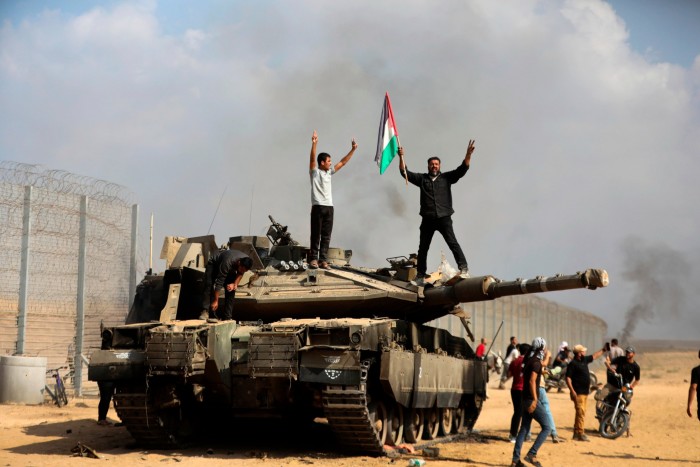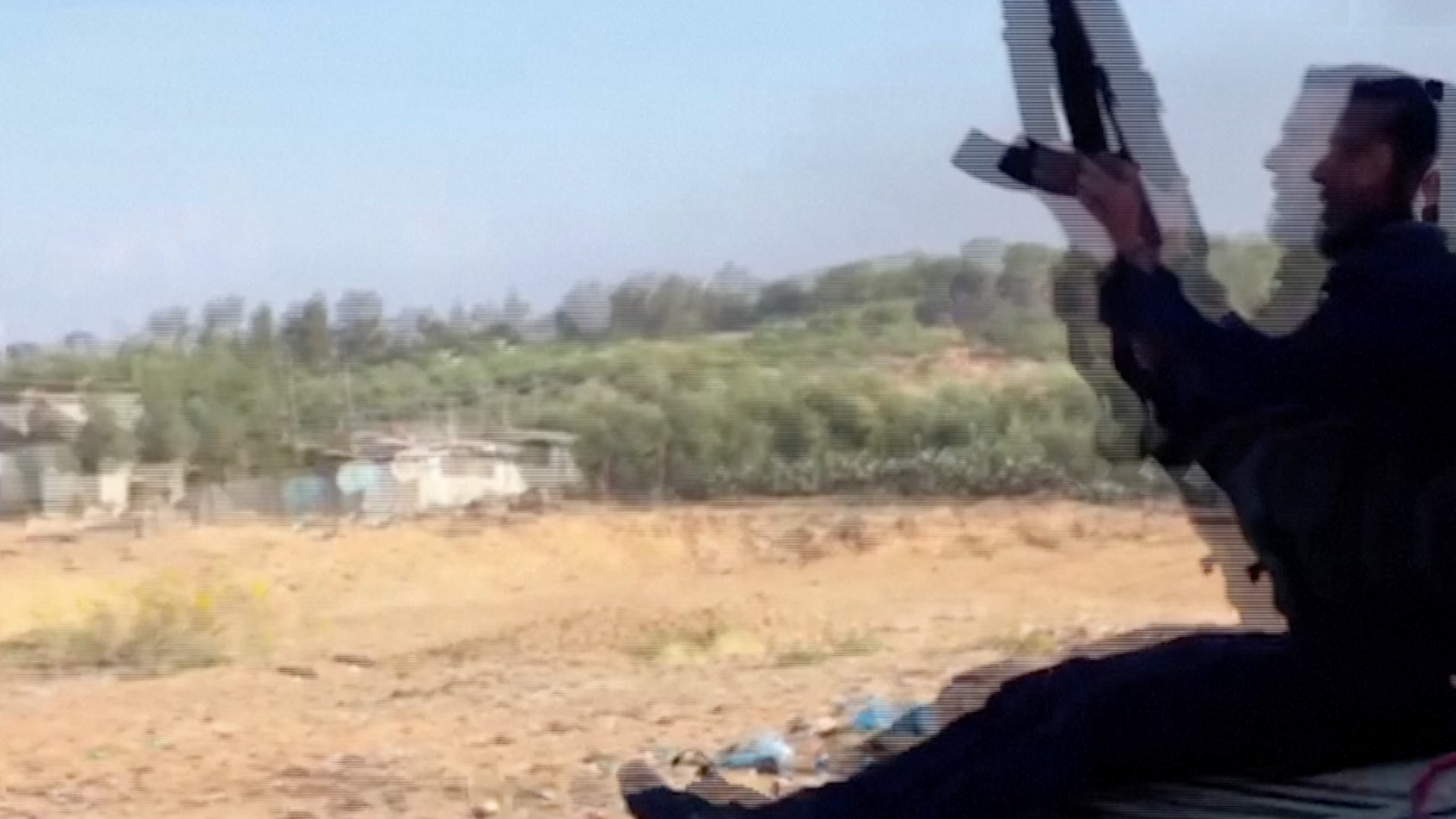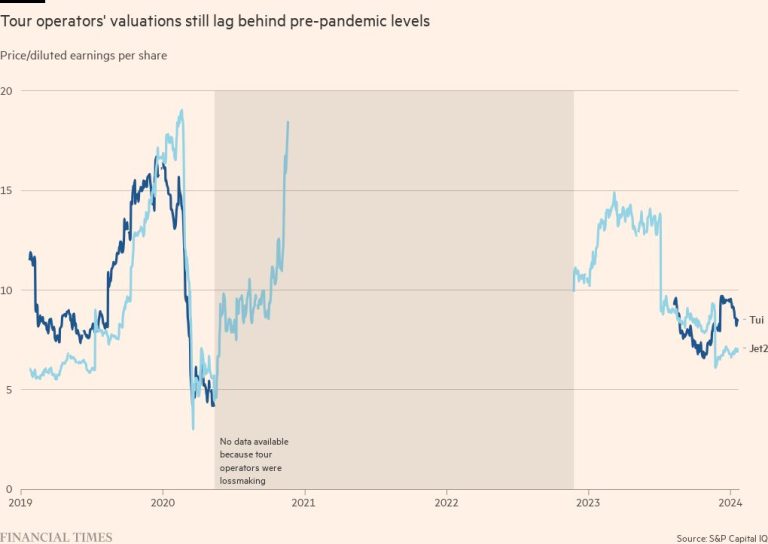Benjamin Netanyahu declared that Israel was “at war” after Hamas launched the biggest attack inside the nation in decades, firing a barrage of rockets and sending militants across the border from Gaza.
At least 70 people in Israel were killed in the unprecedented multi-pronged dawn assault on Saturday when Hamas gunmen targeted civilians and military posts in southern Israel. Israel’s military also confirmed that Palestinian militants had taken hostages, but did not say how many.
Paramedics said that in addition to the fatalities, hundreds of Israelis had been injured. Officials in Gaza said that 198 people had been killed by retaliatory Israeli strikes in the territory, and that 1,610 had been injured.
As the fighting continued inside Israel, Netanyahu said that he had ordered “an extensive mobilization of reserves” and that they would “return fire of a magnitude that the enemy has not known”.
“The enemy will pay an unprecedented price,” the prime minister added as Israeli jets struck targets in the coastal enclave, which has been subject to a blockade by Israel and Egypt since Hamas took control there in 2007.
The assault, during which dozens of Hamas militants entered Israel on paragliders, by land and from the sea, drew expressions of support from other militant groups in the region. Analysts said the attack’s complexity was unlike anything that Israel had witnessed in decades.
“Since 1948 there was not such a military assault inside Israeli territory, all the other wars were on distant fronts. “Right now it’s inside Israel,” said Michael Milshtein, a former IDF military intelligence officer. “This is an invasion, I have no other term to describe it.”
The surprise attack, which was launched on the Jewish holiday of Simchat Torah and appeared to catch the military off-guard, poses a serious challenge for Netanyahu’s far-right government, which came to power last year with hardliners in important posts pledging to bolster security .
Footage broadcast by Israeli’s Channel 12 appeared to show a bulldozer smashing through the border fence between Israel and Gaza. Videos released by Hamas, which it was not immediately possible to verify, depicted drones dropping mortar rounds on an Israeli tank, a guard tower and a group of soldiers near a vehicle.
Other footage showed Hamas gunmen dragging a soldier alive from a burning tank, and a few captured men whom Hamas claimed were IDF soldiers. Islamic Jihad, a smaller militant group in Gaza, also claimed to have captured Israelis.

“Israel’s strategy of defense vis-à-vis the threat of Gaza. . . “built through many years, basically failed,” said Avi Melamed, an analyst. “It’s a very significant failure of the whole system.”
Mohammed Deif, the leader of Hamas’s military wing, said the Palestinian group had fired more than 5,000 rockets at Israel and called on Palestinians and other Arab states for support.
The Iran-backed Hezbollah militant group in Lebanon said the attack was a “message” to countries such as Saudi Arabia that are seeking to normalize diplomatic relations with Israel. It said it was “directly in contact with the leadership of the Palestinian resistance”.
Major General Yahya Rahim Safavi, who advises Iran’s supreme leader on military issues, said Tehran backs [Hamas’s] operation” and that “we believe the resistance movement also supports it” — a reference to other militant groups in the Middle East.
Richard Hecht, a spokesman for Israel’s military, said the army was watching the situation on Israel’s northern border where Hezbollah, which has a far bigger and more sophisticated arsenal than Hamas, is based, and that multiple firefights were taking place in the area around Gaza .
“We’re fighting in certain locations around the Gaza Strip, in the Erez crossing, in Nahal Oz. . . also in the Re’im camp, which is the [Gaza] division headquarters,” he said.
The rocket fire from Gaza set off warning sirens across the south and center of Israel, sending citizens fleeing to air raid shelters as missiles targeted cities including Tel Aviv and Be’ersheva.
Missile strikes destroyed buildings in the southern city of Ashkelon and the thud of interceptions was heard as far north as Jerusalem, a city rarely targeted by missiles from Gaza.
The Israeli military closed roads around Gaza and said that it was flooding the south of the country with reinforcements in a bid to regain control of the situation.
The fighting comes after 18 months of simmering Israeli-Palestinian tension with outbreaks of violence in both Gaza and the West Bank, which Palestinians seek as the heart of a future state but which Israel has occupied since 1967.
According to the latest UN data, which does not include Saturday’s clashes, Israeli forces have killed 212 Palestinians this year, while Palestinians have killed 30 Israelis.
The US National Security Council said it “unequivocally condemns” the attacks. National security adviser Jake Sullivan has spoken to his Israeli counterpart, it said.
US Defense Secretary Lloyd Austin said he was “closely monitoring developments”.
“I extend my condolences to the families of those who lost their lives in this abhorrent attack on civilians,” he said. “Over the coming days the Department of Defense will work to ensure that Israel has what it needs to defend itself and protect civilians from indiscriminate violence and terrorism.”
Turkish president Recep Tayyip Erdoğan called for “restraint”, urging everyone involved to “stay away from impulsive steps that will escalate tensions”.
Additional reporting by Najmeh Bozorgmehr in Tehran, Samer Al-Atrush in Dubai, Adam Samson in Ankara and Felicia Schwartz in Washington












+ There are no comments
Add yours